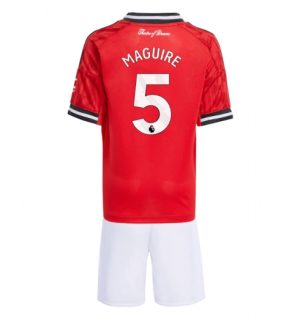The most remarkable thing about this week's Football Money League wasn't Real Madrid's presence at the top; the sport's most prestigious name with a futuristic stadium to sell out was always on course to rake in the big bucks. It was how much room for manoeuvre was left to turn record revenues into more talent on the pitch.
Madrid has long been a money machine. The only difference is that in the Galacticos' earlier eras, these revenues soon lined the pockets of Juventus, Manchester United and Tottenham. Club president Florentino Perez defined excellence not only through success on the pitch. Real Madrid were the greatest not just because they won all the major trophies. They also won the biggest prizes in the transfer market and that was because they were prepared to spend more than anyone else.
Madrid are generating the highest revenue world football has ever seen at a time when they have cut one of the biggest costs for any club: their transfer bill. Since the start of the 2020/21 season - the summer in which they paid nine-figure sums to deal with Eden Hazard's demise - the Spanish and European champions have spent $324 million on new signings, according to Transfermarkt. That's not just less than the Chelsea's and Paris Saint-Germain's of this world. Crystal Palace, Marseille, Leicester City: they have all spent more on new signings than the team that has just taken in 1.1 billion dollars. In five transfer windows, Madrid, the club that used to "put a coat of gold paint on the Bentley" out of pride, has made a profit on the transfer market.
And the most impressive thing about it? Through all of this, they are distorting the football market to their own will. Every club must respond to Perez's vision of a new kind of business or risk losing their best and brightest for a knock-down price. Bayern Munich, Chelsea and Paris Saint-Germain have all seen their stars leave on a free transfer. It seems more than likely that Liverpool will be next. Earlier this month they rejected offers from Madrid for Trent Alexander-Arnold, who can sign a pre-contract at any time.
It would be a difficult decision not to make. Like Antonio Rüdiger and David Alaba before him, Alexander-Arnold has won everything he could win. The drumbeat of the Spanish press makes Madrid's desires clear. The Santiago Bernabeu offers new challenges in the Ballon d'Or factory and a pretty attractive salary to boot. Alphonso Davies, who is expected to reject Madrid's offer and extend his contract at Bayern Munich, is the exception rather than the rule.
The question that hovers behind Madrid's new era of free transfers is what damage they could do to the wage bill. After all, if the money that would have gone to the club now was converted into signing-on fees and player bonuses, it would be hard to make any savings. The fact is that few teams cope better with UEFA's team cost controls than Madrid. According to Deloitte, player salaries account for 48 per cent of their turnover. Among the Money League's top 10, only Tottenham give a lower proportion of their turnover to the first team. Their off-field strategy only helps, as they have hosted extremely lucrative Taylor Swift concerts in the past and hosted the NFL's Miami Dolphins, who will have a home game at the stadium next season.
"Increasing your turnover is an ideal way to make your wage bill appear lower," says Theo Ajadi, associate director of Deloitte's Sports Business Group. "Madrid has done this successfully this year. The key is to maintain it, and there are some elements of that increase that may not be repeated, particularly the pre-sale of matchday seats this season."
Post COVID, Madrid's financial management has been a triumph. Their new version of the Santiago Bernabeu fulfils the vision of stadiums as assets that are exploited 365 days a year, commercial revenues have increased by 50 per cent in two years and the transfer market is a source of money and not a burden for them. Even the sale of part of the stadium profits to the Sixth Street investment fund was used to boost infrastructure projects and not for a Barcelona-like shopping spree.
Madrid's reported wage-to-revenue ratio also doesn't take into account the free transfer of Kylian Mbappe from Paris Saint-Germain in July. That will undoubtedly boost the ratio by a few percentage points, although not as much as might have been predicted before he signed a deal reportedly worth around $36 million per season. Handing out three and a half per cent of revenue to your most prominent employee is not an absurd extravagance in football. Madrid has allowed itself the luxury.
Even before Alexander-Arnold arrives, the question seems to be who is next. William Saliba is approaching the final two years of his contract and there is a long-term vacancy in the Madrid defence. Cristian Romero is in the same position. Ibrahima Konate has just over a year left on his Liverpool contract. In the summer of 2027, Bukayo Saka, Florian Wirtz and Phil Foden could join Saliba, all for a small transfer fee. Who would doubt that at least one of these players will be wearing all white this summer?
If there is a way out of Madrid's shadow, Manchester City may have found it. However, it is not as obvious as one might imagine. Make no mistake, the contract extension with Erling Haaland, who was also slated for the 2027 free agency class, is more of a good thing than a bad thing.
However, if the string-pullers at the Etihad Stadium really had their way, they would surely have preferred a six- or seven-and-a-half-year deal that would take their No.9 into his early 30s, but not the behemoth that will earn him around $32 million a year until a few weeks before his 35th birthday. It has long been hinted, not least by his father, that Haaland had no intention of spending the rest of his career in England but wanted to try out life in La Liga at some point. He probably longed for the Bernabeu rather than Balaido.
The price for blocking Haaland's path to Madrid then looks like it will be superstar money at a point in his career when Haaland probably won't be a superstar. However, that's better than the ticking clock that has driven Liverpool mad in recent months.
Whether Haaland's new contract is an exception or Cole Palmer's nine-year deal reflects a new approach to player retention is yet to be seen. What is clear, however, is that the rest of Europe will have to adapt. Madrid have the money and the power to get almost any prize they want. That won't change any time soon.














